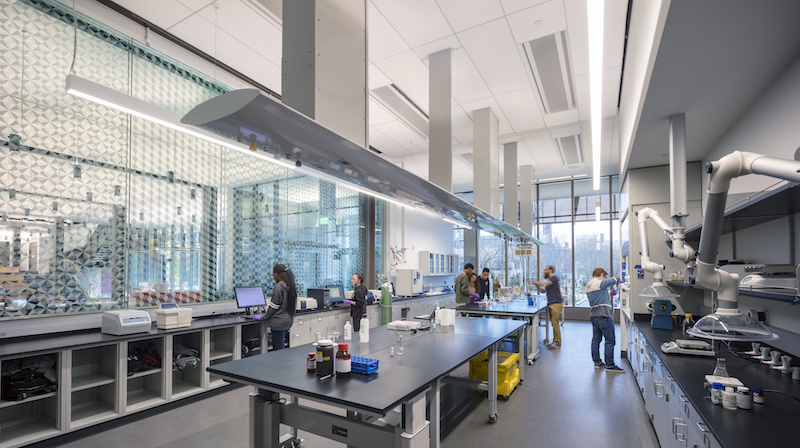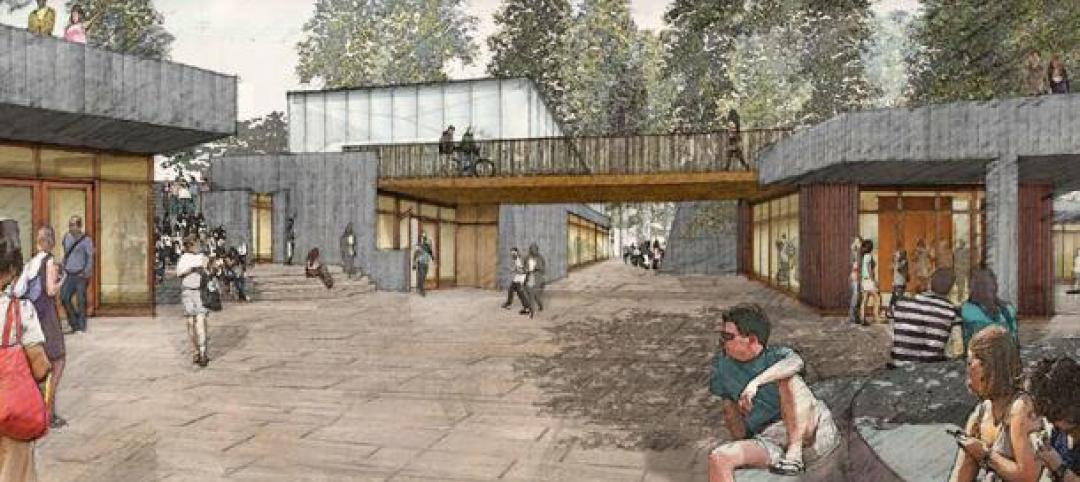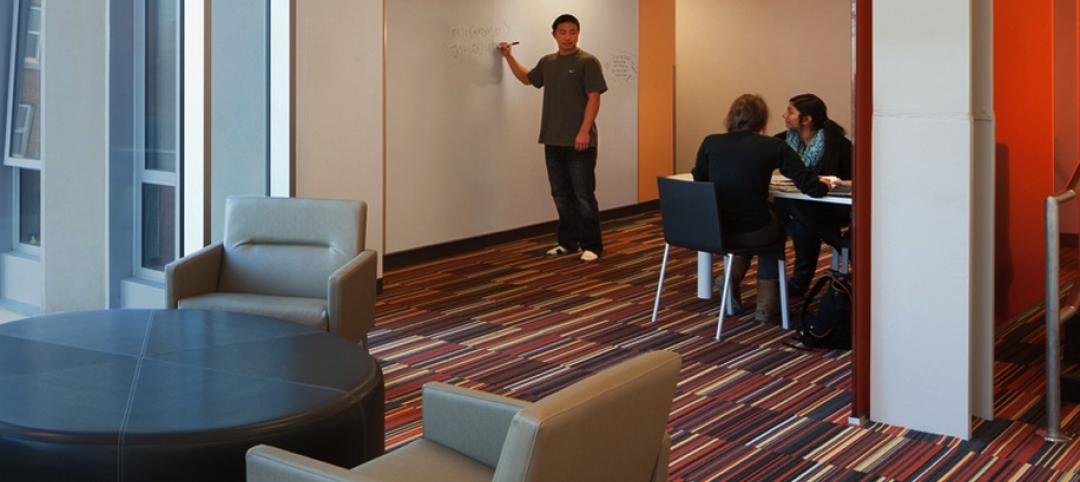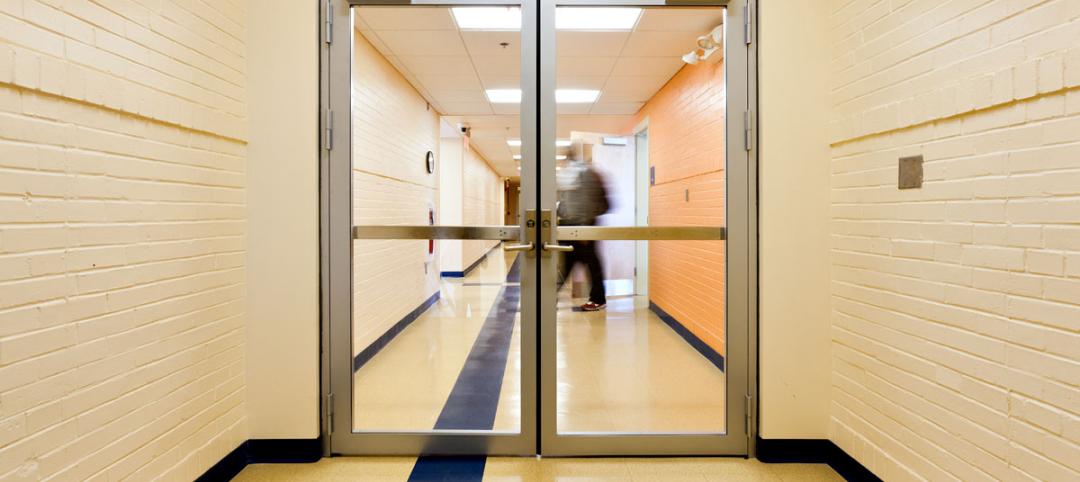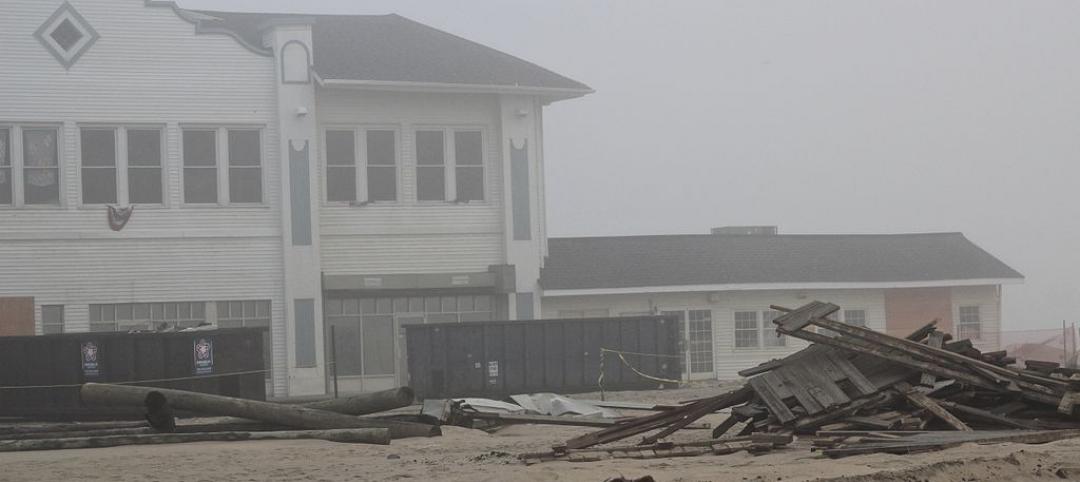The recently completed Engineering Research Center (ERC) at Brown University provides the school with 80,000 sf of space across three-floors. The building houses specialized research facilities for nanomaterials, photonics, and environmental science to help expand research in renewable energy and advanced materials.
Among the new $88-million facility’s spaces are an 8,000-sf cleanroom for nanomaterials, microelectronics, and photonics, an imaging suite, a bioimaging suite, 22 open-plan research labs, 116 dedicated workstations for graduate students, 20 lab modules, 10 conference/meeting spaces, and a café.
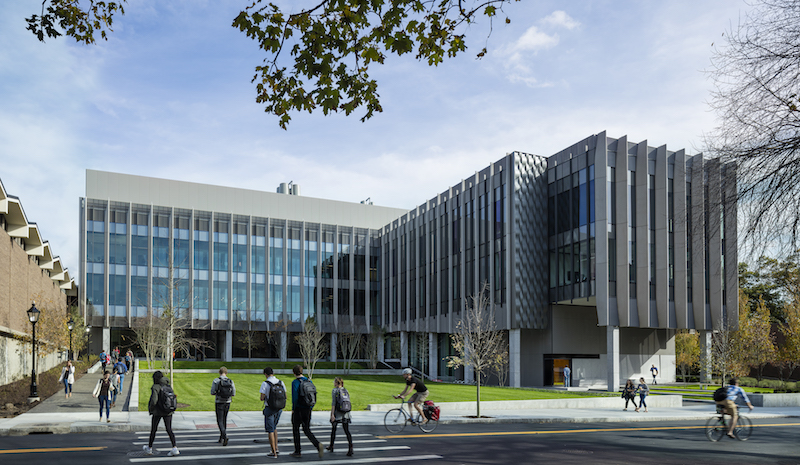 Photo: Warren Jagger Photography.
Photo: Warren Jagger Photography.
Also included are the Hazeltine Commons on the building’s first floor and Giancarlo Plaza, a green space outside the building’s front doors. These two spaces are designed to create an “intellectual community” for faculty and students from across the campus.
The ERC is is tracking LEED Gold Certification with an energy and performance goal of 25% better than minimum efficiency and performance criteria established in the Rhode Island-adopted International Energy Conservation Code. Among the building’s sustainable features are 60 glass reinforced concrete vertical fins to manage solar gain, four water-filling stations, and a façade made from 40% glass to capture natural daylight and lower energy costs.
 Photo: Warren Jagger Photography.
Photo: Warren Jagger Photography.
Shawmut Design and Construction used Integrated Project Delivery and Lean Construction delivery methods to finish the building months ahead of schedule. This is the first time a Brown University building was completed using these methods.
See Also: Virginia Commonwealth has at least three major expansion projects under construction
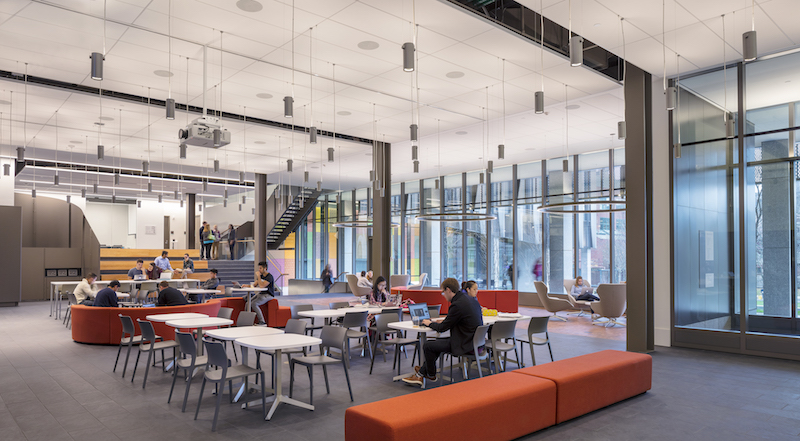 Photo: Warren Jagger Photography.
Photo: Warren Jagger Photography.
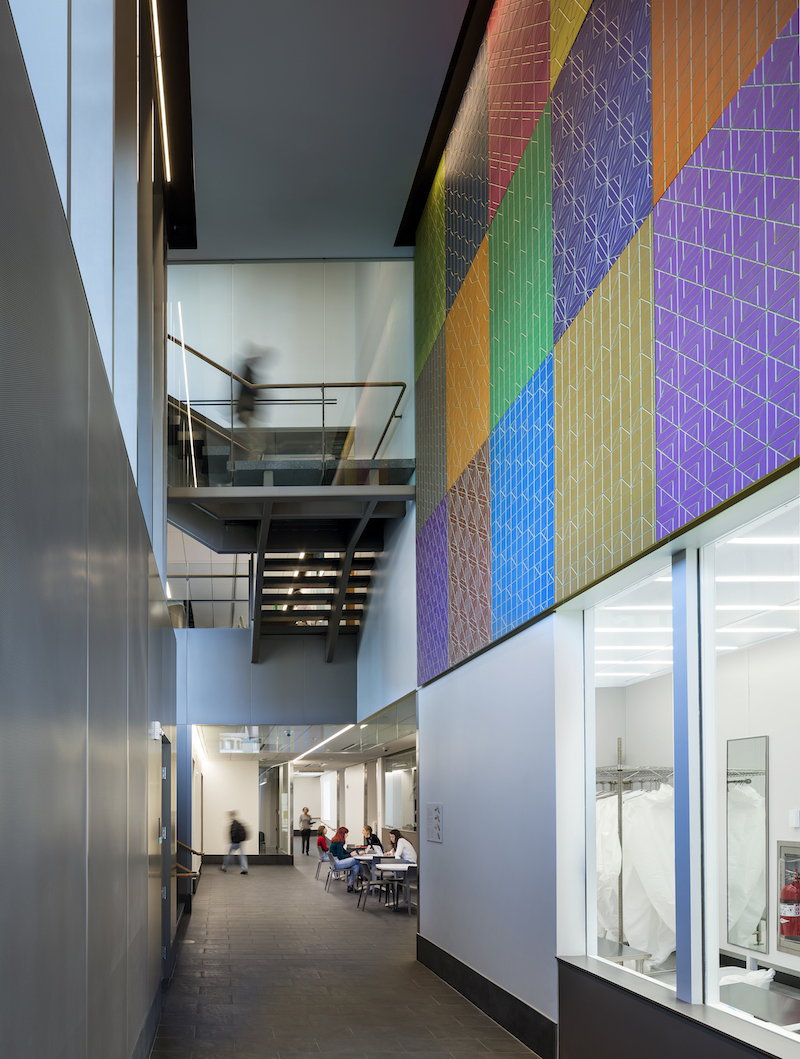 Photo: Warren Jagger Photography.
Photo: Warren Jagger Photography.
Related Stories
| Jun 12, 2014
Tod Williams Billie Tsien Architects' design selected for new UCSC facility
The planned site is a natural landscape among redwood trees with views over Monterey Bay, a site that the architects have called “one of the most beautiful they have ever worked on.”
| Jun 12, 2014
Austrian university develops 'inflatable' concrete dome method
Constructing a concrete dome is a costly process, but this may change soon. A team from the Vienna University of Technology has developed a method that allows concrete domes to form with the use of air and steel cables instead of expensive, timber supporting structures.
| Jun 11, 2014
5 ways Herman Miller's new office concept rethinks the traditional workplace
Today's technologies allow us to work anywhere. So why come to an office at all? Herman Miller has an answer.
| Jun 9, 2014
6 design strategies for integrating living and learning on campus
Higher education is rapidly evolving. As we use planning and design to help our clients navigate major shifts in culture, technology, and funding, it is essential to focus on strategies that help foster an education that is relevant after graduation. One way to promote relevance is to strengthen the bond between academic disciplines and the campus residential life experience.
| May 29, 2014
7 cost-effective ways to make U.S. infrastructure more resilient
Moving critical elements to higher ground and designing for longer lifespans are just some of the ways cities and governments can make infrastructure more resilient to natural disasters and climate change, writes Richard Cavallaro, President of Skanska USA Civil.
Sponsored | | May 27, 2014
Grim Hall opens the door to fire safety with fire-rated ceramic glass
For the renovation of Lincoln University’s Grim Hall life sciences building into a state-of-the-art computer facility, Tevebaugh Associates worked to provide students and faculty with improved life safety protection. Updating the 1925-era facility's fire-rated doors was an important component of the project.
| May 20, 2014
Kinetic Architecture: New book explores innovations in active façades
The book, co-authored by Arup's Russell Fortmeyer, illustrates the various ways architects, consultants, and engineers approach energy and comfort by manipulating air, water, and light through the layers of passive and active building envelope systems.
| May 19, 2014
What can architects learn from nature’s 3.8 billion years of experience?
In a new report, HOK and Biomimicry 3.8 partnered to study how lessons from the temperate broadleaf forest biome, which houses many of the world’s largest population centers, can inform the design of the built environment.
| May 13, 2014
19 industry groups team to promote resilient planning and building materials
The industry associations, with more than 700,000 members generating almost $1 trillion in GDP, have issued a joint statement on resilience, pushing design and building solutions for disaster mitigation.
| May 11, 2014
Final call for entries: 2014 Giants 300 survey
BD+C's 2014 Giants 300 survey forms are due Wednesday, May 21. Survey results will be published in our July 2014 issue. The annual Giants 300 Report ranks the top AEC firms in commercial construction, by revenue.


